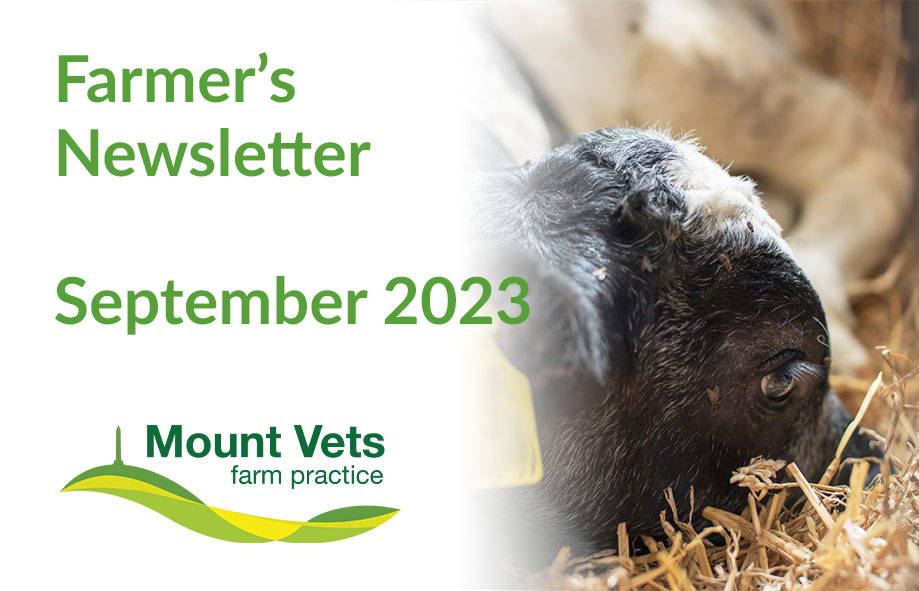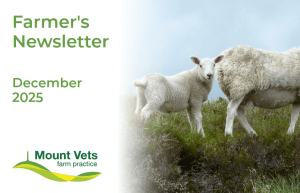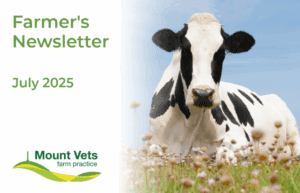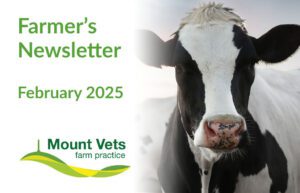September 2023
Here is the latest from our farm team at Mount Vets. If you would like any further advice or would like us to cover something in the next newsletter, please call us on 01823 662286 or contact us here.
We want to hear your feedback… Leave us a review!
Our new website is now live. We hope you enjoy an easier navigation through the pages and have had the opportunity to look at the new information that we have added. We value your feedback and comments and would appreciate if you could take the time to leave us a review! Please follow the link to share your thoughts. https://g.page/r/CTSyP_UXvSPIEAI/reviewSalmonella – a brief overview
Infection type | Infection stage | Clinical characteristics | Duration | Shedding |
|---|---|---|---|---|
Acute Infections | Peracute | Sudden death. No clinical signs. | 1-2 days | Often die before shedding commences. |
Acute | Variation in severity of clinical signs. | 1-3 weeks (can extend to 5-9 weeks) | Copious shedding, either continuously or intermittently. | |
Persistent Infections | Chronic | Follows acute presentation. Typically fail to thrive. | Months | May or may not shed. |
Passive carrier | Subclinical.
Bacteria are present in gut lumen, but not intestinal epithelium.
| Months to years | Shed low amounts and only when reactivated. | |
Latent carrier | Subclinical.
Bacteria are present in lymphoid tissues and may be reactivated at times of stress.
| Months to years | Shed low amounts and only when reactivated. | |
Active carrier | Subclinical.
Bacteria is present in gut, lymphoid system and internal organs.
| Months | Intermittent or continuous shedding at levels similar to acutely infected animals. |
Treatment is achieved by systemic antibiotics, anti-inflammatories, and fluid therapy. But we would stress that you must give us a ring if you have a suspected case, so we can help guide treatment choices, as certain strains show resistance to some antibiotics commonly used on farm.
Most often diagnosis is achieved through faecal culture, this is especially accurate in cases with diarrhoea. For those who aren’t showing such overt signs, we may need to use serology to determine exposure.
Salmonella can be caught by you, and your family. So, it is vital that you properly protect yourselves – gloves, separate wellies, separate overalls, foot dips and proper handwashing (not just a rinse under the hose) should be considered. Salmonella Dublin is the most common strain to be isolated from cattle, this is also the strain with the most hospitalisations of humans due to sepsis, or worse.
If you have a confirmed case, it is best practice to isolate the animal, to prevent further spread. Prompt isolation is key, some experiments have demonstrated an incubation period of only 1 day. Typically, Salmonella is spread through ingestion of faecal matter, but in rare cases inhalation or conjunctival contact is sufficient to initiate infection – this is why we ask you to remove other livestock and wear PPE yourself when pressure washing housing!
Speaking of cleaning… Salmonella can hang around in the environment for a long time. In dried manure, it can live for 5 years! Whilst cleaning and disinfecting isn’t always the easiest (or most enjoyable) of tasks, it is still an important aspect of Salmonella control. Many disinfectants are suitable, but we are always happy to talk you through them if unsure whether the one you have specifically will work.
Vaccination is possible for Salmonella; this is something to be discussed in the settings of each farm individually about how it can be best used to your advantage. Other ways of prevention rely on biosecurity and prevention of exposure to cases that are confirmed as outlined above.
An Update in the World of Wormers: Part Two
As wormer resistance continues to slide, year-by-year, from a looming threat on the horizon to a common and concerning advice call, more and more new advice surfaces from industry leaders on things that can be done to curb this trend. Consider this series a little round up of tips, tricks, and developments that you may not have come across yet.
- Concerning Prescription Wormers – There are two prescription-only wormer products in the UK, the orange and purple drenches. The orange drench is the most commonly used, due to smaller volume packs being available and although there are certainly some recorded incidents of orange drench resistance emerging already, there should be significantly less resistance against these products than the more commonly used ones – giving them an obvious use on farms that have had wormer resistance diagnosed on farm already. These drenches can be used very effectively as a quarantine treatment as well, as this will lower the chance of buying in resistant worm populations. In the last few years, using these drenches as a firebreak drench in the autumn has also gained popularity, even on farms that have not necessarily got a significant resistance issue already present. This can help to significantly reduce the gut worm population, including (most) of the resistant worms, at the point in the year where pasture egg burdens are building to their highest point. This may be done annually, though take care to ensure that you are not doing this on the exact same pasture each year as resistance may crop up on these pastures over a few years of repetition. Try to treat lambs and only move onto clean or low risk pasture after 2-3 days.
- Concerning Wormer Effectiveness Testing – This should be carried out on all sheep farms, if not done recently already. Most people should be alternating between clear and yellow drenches and so checking up on the effectiveness of these two wormers is crucial to making a plan for sustainable wormer use on farm. Currently, the Animal Health and Welfare Pathway is providing funding for anyone with 51 or more sheep to carry out this testing. Essentially, we do a faecal egg count from the day of treatment and another at day 7 (yellow drenches) or 14 (all other products) post-treatment. We are looking for a reduction in egg count of at least 95%, less than this will point towards the beginnings of a resistance issue. This should be built into the worm control plan of every flock, to check the efficacy of these wormers annually – especially if you tend to rely on one product. Those performing their own worm egg counts on-farm have no excuse and should be checking every wormer type used on farm annually. Call us at the practice if you are interested in faecal egg count reduction testing with the AHWP as there are some logistical things to discuss ahead of time.
- Concerning Correct Dosing Technique – It is absolutely imperative to check that your drenching gun is working correctly before each use, as there is a lot that can go wrong with these. Use a measuring cylinder or jug to double check that the gun is correctly dispensing the expected volume of drench. Underdosing lambs significantly increases the risk of wormer resistance developing, so weigh lambs for best results. Dosing all lambs to the heaviest lamb in the group can be a convenient way to avoid underdosing, however if there is a large variation in lamb size, some may run the risk of a slight overdose so consider drafting out the smaller lambs into a separate group and dosing to the biggest lamb in the small group. Ensure the nozzle is passed all the way over the back of the tongue – but be gentle, every year we diagnose lethal drenching gun injuries and abscesses in the back of the throat from over-zealous drenching technique.
Sustainable Worm Control in Cattle
Last month we discussed the vital role of the dung beetle in helping turn cow pats into free fertiliser for your soil. The indiscriminate use of ivermectin-containing products while cattle are at grass can take a serious toll on these helpful critters, along with other insect species that play similar roles. On top of this, you may be driving the development of wormer resistance, especially with hastily applied pour on products sprayed at youngstock as they wonder around a field. Just as importantly, you could well be pouring money down the drain on unnecessary wormer products!
- Vaccinate – lungworm is very difficult to predict year-to-year, on when in the summer/autumn it will start to appear, and which fields and groups will present with an issue. It is also difficult to confidently know that a group doesn’t have some level of lungworm infection as it can have a long period before symptoms show up where you may not find larvae on dung samples. The tricky nature of this parasite often leads farmers to end up worming youngstock frequently “just in case”, especially when they’ve had issues on-farm before. There is, however, a vaccine. It is administered orally to calves ahead of their first (or second) grazing season, with two doses 4 weeks apart finished 2 weeks before turnout.
- Do They Really Need Worming? – A combination of faecal egg counting, daily liveweight gain and body condition scoring can all help to determine whether worming is actually likely to be necessary or beneficial. Just worming them because they happen to be being TB tested could result in unnecessary worming or worming at the wrong point in the year, leaving them still vulnerable later on when the egg burden is higher on pasture. When the decision is made to treat the group, do not treat the whole group (unless we have suspicion of lungworm) – rather leaving the fittest 10-20% (or more!) untreated.
- Pasture Management – Avoiding high risk pastures, particularly in the autumn, can significantly reduce the risk of exposure to worm eggs. Look to utilise ground that wasn’t grazed by youngstock yet this year (and ideally the year before), silage aftermath, ground that has been grazed by sheep or adult cattle etc. Mob grazing keeps youngstock constantly moving onto fresh, clean grazing and so are rarely in one place long enough for the eggs to build up to significant levels and should have hatched and died out long before youngstock return to that ground. Herbal leys receive more and more press these days, as they contain a high level of tannins which are believed to act as a natural wormer. In addition, worm larvae have evolved to climb grass blades, whereas the leaves of clover, chicory and the like obstruct the ability of these larvae to climb to the top of the plant for consumption.
- Utilise Adult Cattle – these act as worm egg hoovers, cleaning pasture while being protected by their own natural immunity, so produce few eggs themselves. This should keep suckled calves at foot relatively safe from worms and we would rarely see worm issues developing until after weaning.
Don’t Just Rely on Ivermectins – Although certainly less convenient, other wormers such as levamisole and the white drenches can be used as well and are much less damaging to the soil ecosystem. Levamisole is particularly useful for treating lungworm as it paralyses rather than kills the worms all at once, reducing the risk of a hyperreactive immune response occurring after treatment, which can be lethal. Once animals are housed, we have less to worry about regarding ivermectin being passed directly onto the soil and so ivermectin would be best saved until then.
Upcoming courses
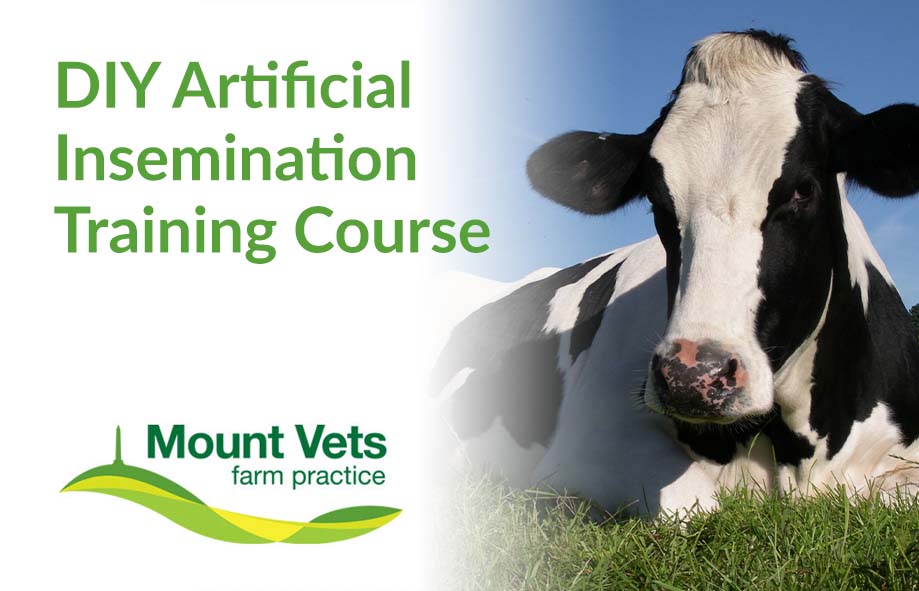
DIY Artificial Insemination
23rd, 24th, 26th & 27th October 2023
Our next 4-day DIY AI course will run on 23rd, 24th, 26th & 27th October 2023.
This DEFRA approved course is aimed at anyone who has no previous experience in the artificial insemination of cows. The 4-day course is run by our experienced farm vet Rob Mangham and is full of theory and practical sessions to make sure you leave feeling confident and safe in all aspects of AI.
The cost of the course is £500 + VAT, with a £50+VAT deposit to secure your space. (Deposit will be taken off final amount)
Please ring the practice to book your place on any of our courses on 01823 662286 or email farm@mountvets.com
Meet the Team!
We have an experienced & friendly team here at Mount Vets. You might already recognise a few faces but over the next few months we will reintroduce you to some of our excellent team. To read more and see more of the faces of Mount Vets visit our team page, and be sure to follow us on Instagram and Facebook.
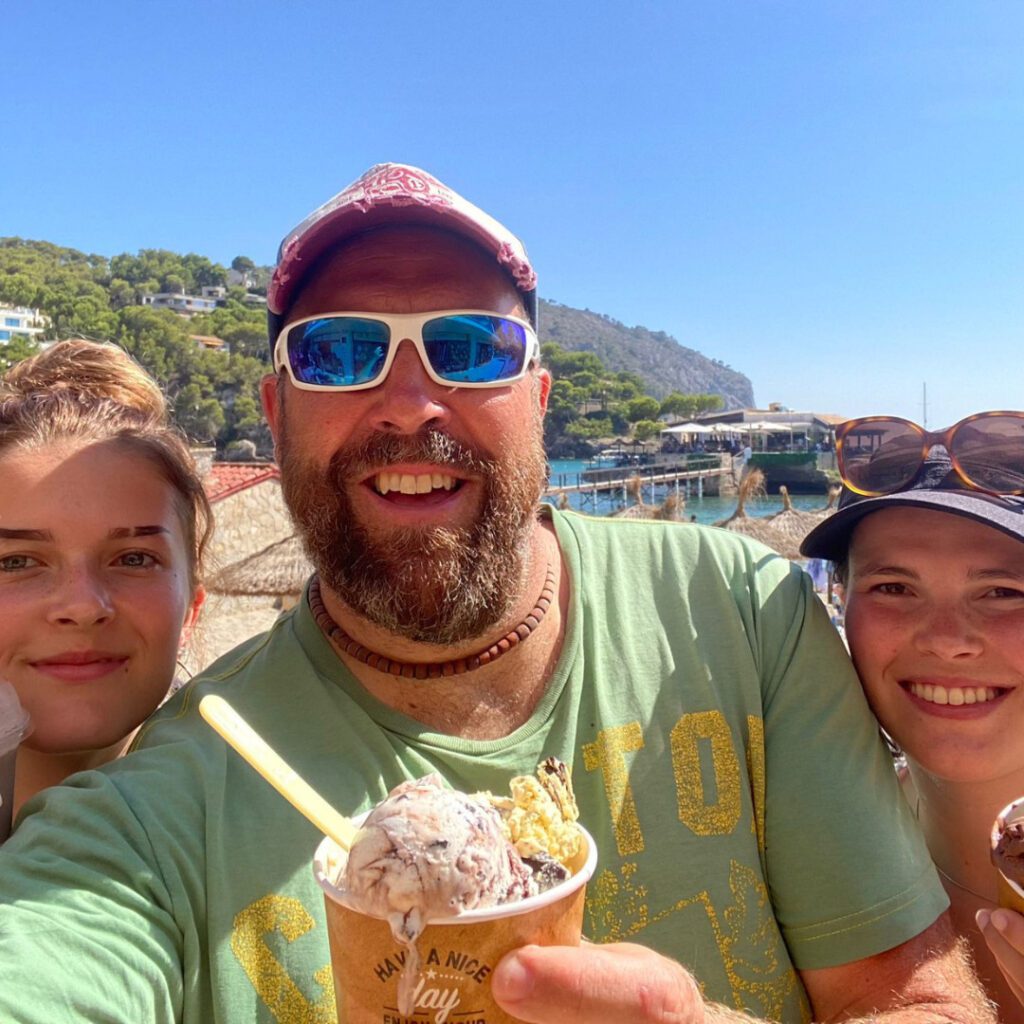
Piers Pepperell
Director
Many of you will already know our Mount Vets Director Piers; but did you know he has appeared on tv show Blind Date with Cilla Black?
Piers loves to spend a free day with his two daughters and three dogs, surfing on the North Devon Coast.
His favourite vet call out was when he was called into the waiting room and unknown to him at the time, but he then met his wife to be. She had brought in her eight baby bunny rabbits, which led on naturally to a 10-minute chat about pig wormers and her asking Piers out on a date.
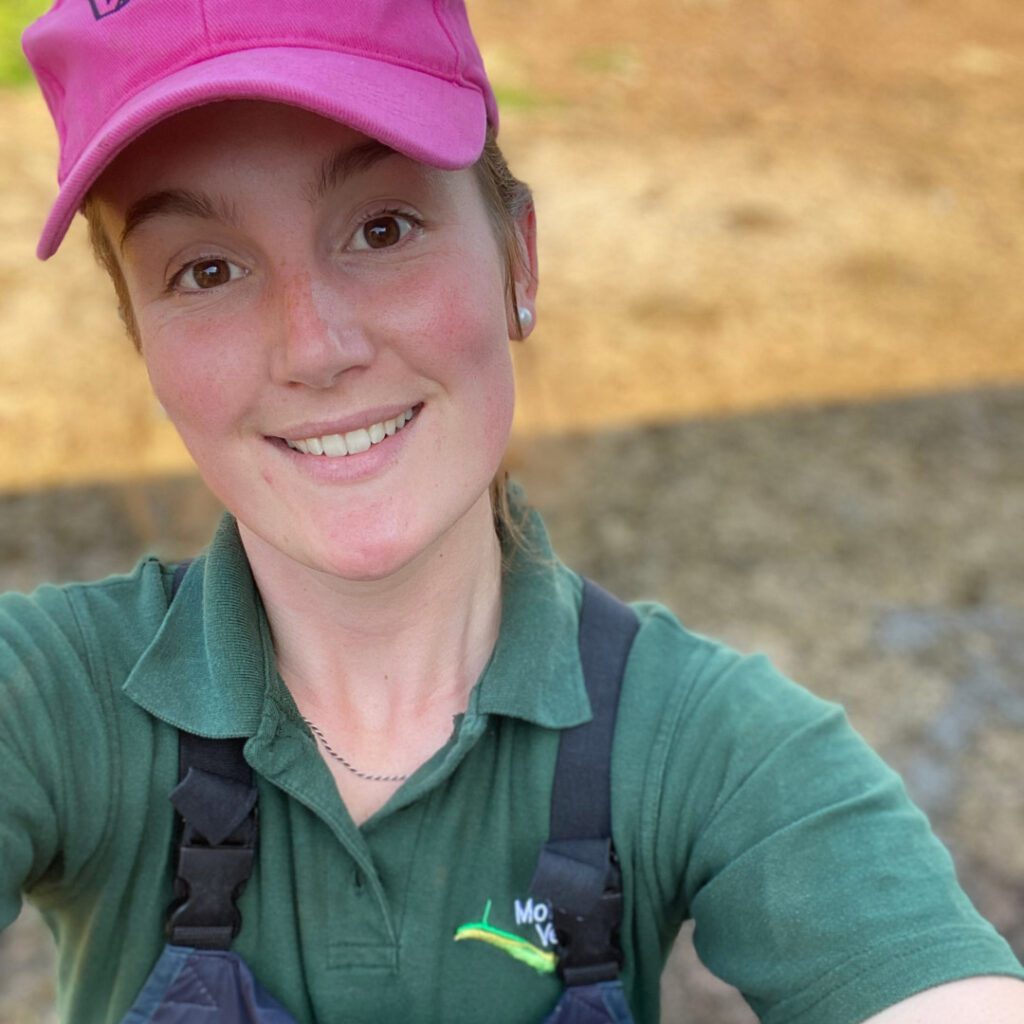
Pip White
Vet
Pip is one of our large animal vets. If you’ve met her, you will probably know how much she loves her cows. So much so, that she loves to spend her free time at home with her cows! That, or in the showring showing them. 🐮
Pip graduated as top student in her year from the University of Surrey.
Her favourite song is Mr Brightside by the Killers.
Have a question about any of the topics covered in this newsletter?
If you need any assistance with the topics covered in this newsletter, please do not hesitate to get in touch with our experienced farm vets who will be able to help. Call 01823 662286, or contact us here.
